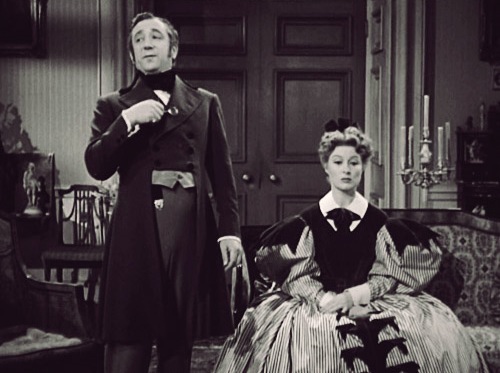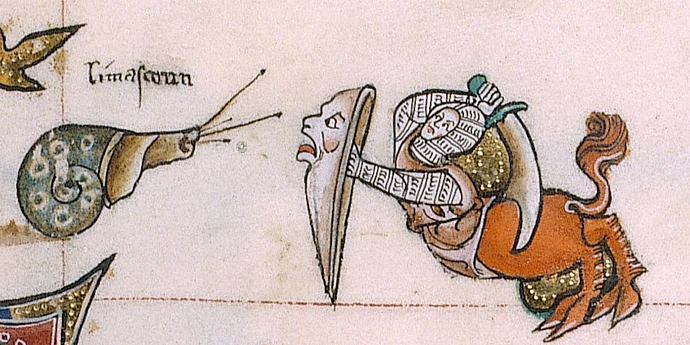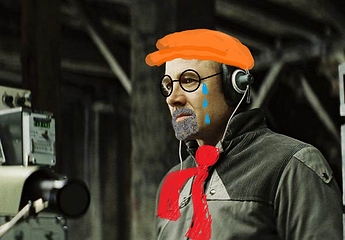The 16th proposition also has some good arguments: http://www.qhpress.org/texts/barclay/apology/prop15.html
“Sixthly, The last thing to be considered is revenge and war, an evil as opposite and contrary to the Spirit and doctrine of Christ as Light to darkness. For as is manifest by what is said, through contempt of Christ’s law the whole world is filled with various oaths, cursings, blasphemous profanations, and horrid perjuries; so likewise through contempt of the same law the world is filled with violence, oppression, murders, ravishing of women and virgins, spoilings, depredations, burnings, vastations, and all manner of lasciviousness and cruelty; so that it is strange that men made after the Image of God should have so much degenerated that they rather bear the image and nature of roaring lions, tearing tigers, devouring wolves, and raging boars than of rational creatures endued with reason: and is it not yet much more admirable that this horrid monster should find place and be fomented among those men that profess themselves disciples of our peaceable Lord & Master, Jesus Christ, who by excellency is called the Prince of Peace and hath expressly prohibited his children all violence, and on the contrary commanded them that according to his example they should follow patience, charity, forbearance, and other virtues worthy of a Christian.
Hear then what this great Prophet saith, whom every soul is commanded to hear under the pain of being cut off (Matt. 5:38 to the end of the chapter). For thus he saith: “Ye have heard that it hath been said, an eye for an eye, and a tooth for a tooth. But I say unto you, That ye resist not evil: but whosoever shall smite thee on thy right cheek, turn to him the other also. And if any man will sue thee at the law, and take away thy coat, let him have thy cloak also. And whosoever shall compel thee to go a mile, go with him twain. Give to him that asketh thee; and from him that would borrow of thee turn not thou away. Ye have heard that it hath been said, Thou shalt love thy neighbor and hate thine enemy: But I say unto you, Love your enemies, bless them that curse you, do good to them that hate you, and pray for them which despitefully use you and persecute you. That ye may be the children of your Father which is in heaven: for he maketh his sun to rise on the evil, and on the good, and sendeth rain on the just, and on the unjust. For if ye love them which love you, what reward have ye? Do not even the publicans the same? And if ye salute your brethren only, what do you more than others? Do not even the publicans so? Be ye therefore perfect, even as your Father which is in heaven is perfect.”
……
Nevertheless because some, perhaps through inadvertency, and by the force of custom and tradition, do transgress this command of Christ, I shall briefly show how much war doth contradict this precept, and how much they are inconsistent with one another, and consequently that war is no ways lawful to such as will be the disciples of Christ. ForFirst, Christ commands that we should “love our enemies”;k but war, on the contrary, teacheth us to hate and destroy them.
Secondly the apostle saith that “we war not after the flesh,” and that "we fight not with flesh and blood."l But outward war is according to the flesh, and against flesh and blood, for the shedding of the one and destroying of the other.
Thirdly, the apostle saith that "the weapons of our warfare are not carnal, but spiritual."name=“t8”>m 8 But the weapons of outward warfare are carnal, such as cannon, muskets, spears, swords, &c., of which there is no mention in the armour described by Paul.
Fourthly, because James testifies, that wars and strifes come from the lusts, which war in the members of carnal men:n But Christians, that is, those, that are truly saints, "have crucified the flesh, with its affections and lusts."o Therefore they cannot indulge them by waging war.
Fifthly, because the prophets Isaiah and Micah have expressly prophesied, that in the mountain of the house of the Lord, Christ shall judge the nations, and then “they shall beat their swords into ploughshares,” &c.,p and the ancient Fathers of the first three hundred years after Christ did affirm these prophecies to be fulfilled in the Christians of their times, who were most averse from war, concerning which Justin Martyr, Tertullian, and others may be seen: which need not seem strange to any, since Philo Judaeus abundantly testifies of the Essenes, that “there was none found among them, that would make instruments of war.” But how much more did Jesus come, that he might keep his followers from fighting, and might bring them to patience and charity.
Sixthly, because the prophet foretold that there should “none hurt nor kill in all the Holy Mountain” of the Lord:q But outward war is appointed for killing and destroying.
Seventhly, because Christ said that “his Kingdom is not of this world,” and therefore that "his servants shall not fight:"r Therefore those that fight are not his disciples nor servants.
Eighthly, because he reproved Peter for the use of the sword, saying, "Put up again thy sword into his place: for all they that take the sword, shall perish with the sword."s Concerning which Tertullian speaks well (lib. de idol.), “How shall he fight in peace without a sword, which the Lord did take away? For although soldiers came to John and received a form of observation, if also the centurion believed afterwards, he disarmed every soldier in disarming of Peter.” Idem., de Coron. Mil. asketh, “shall it be lawful to use the sword, the Lord saying that he that useth the sword shall perish by the sword?”
Ninthly, because the apostle admonisheth Christians, that they defend not themselves, neither revenge by rendering evil for evil, but give place unto wrath, because vengeance is the Lord’s: “Be not overcome of evil, but overcome evil with good. If thine enemy hunger, feed him: if he thirst, give him drink”:t But war throughout teacheth and enjoineth the quite contrary.
Tenthly, because Christ calls his children to bear his cross,u not to crucify or kill others: to patience not to revenge: to Truth and simplicity, not to fraudulent stratagems of war, or to play the sycophant, which John himself forbids: to flee the glory of this world; not to acquire it by warlike endeavours: Therefore war is altogether contrary unto the Law and Spirit of Christ.
I welcome your discussion and comments.
–Yours in Truth,
Mr Collins.






 “You are the dancing queen, young and …”
“You are the dancing queen, young and …”